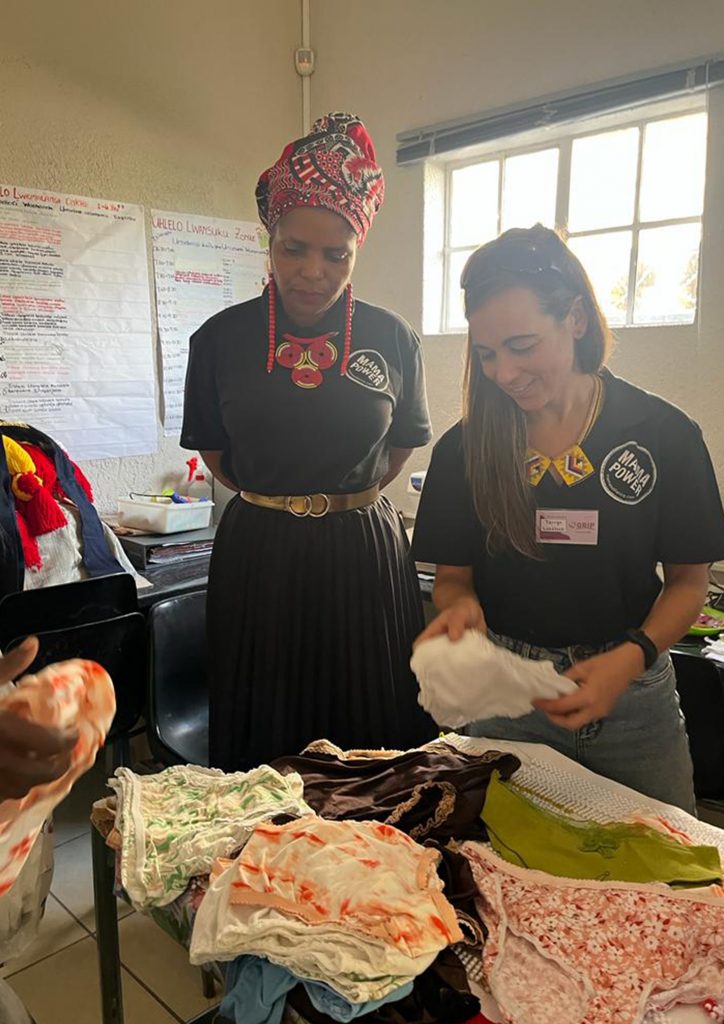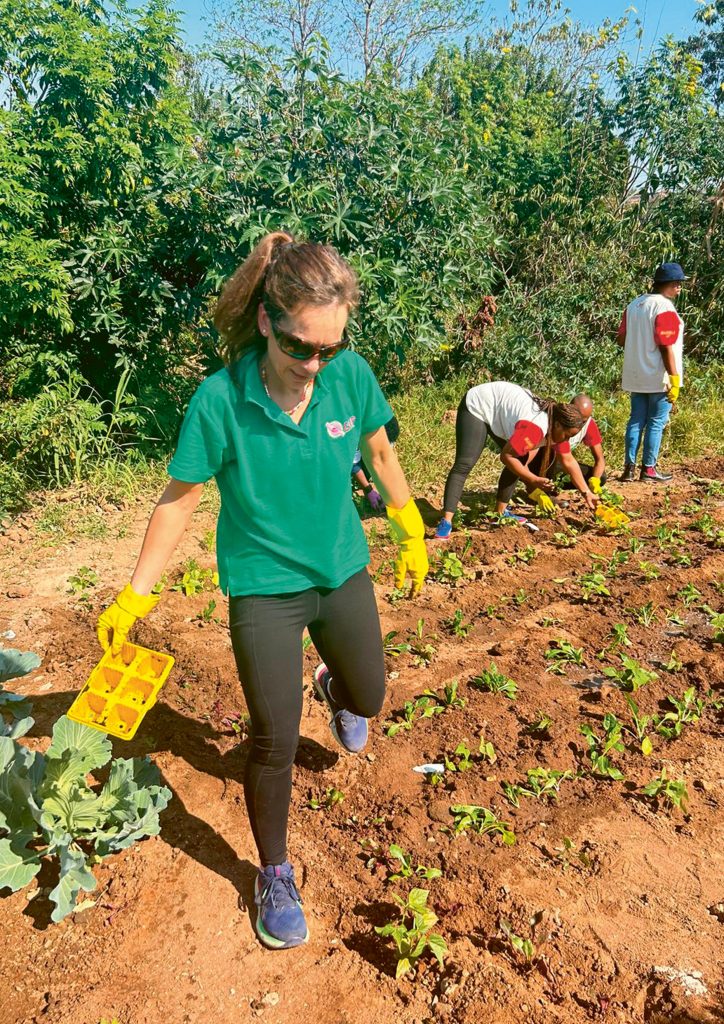Now the CEO of GRIP (Greater Rape Intervention Programme), Tarryn is faced with the helplessness of survivors who, unfortunately, easily become just another number, swallowed up by crime statistics. The sad reality is that people often aren’t given the care and support they need to overcome the trauma caused by gender-based violence. Tarryn explains that this isn’t always necessarily because the police or nurses and other rights bearers don’t care; sometimes it could be a shortage of staff and resources, or a lack of the specific training required to handle situations like this.
It also boils down to the fact that sometimes survivors don’t know what to do. “For example, how many people know that if you are raped, you need to go to a public hospital such as Rob Ferreira Hospital, as Mediclinic doesn’t have forensic-medico services available?” she asks. “How many people know that you need to report within 72 hours to ensure that you are initiated on PEP (post-exposure prophylaxis) medication to prevent you from contracting HIV? People tend to have an incredibly negative outlook towards public hospitals, but the forensic-medico facilities at Rob Ferreira are first-rate.

It has a dedicated Thuthuzela Care Centre (TCC), which is one of the many one-stop facilities introduced as a critical part of South Africa’s anti-rape strategy. Everything is monitored by the National Prosecuting Authority in their role as site co-ordinators, all equipment is in good working order and the unit is always clean. Our GRIP first responders at the TCC are available 24 hours a day and provide comprehensive trauma containment – from the time of entry into the TCC, they explain exactly what will happen step by step, from statement taking with the SAPS (if they have not come from the police station already) to the forensic examination and introduction to our GRIP social worker for longer term support.”
Rape doesn’t discriminate, not in any way
The truth is that none of us really know what to expect, and the last thing you are thinking about in the case of sexual violence is protocol. People don’t always know where to go first – the police station or the hospital. We tend to think that it won’t happen to me, but the reality is that it could happen to anyone. “Rape doesn’t discriminate, not in any way,” Tarryn says.
“I work with amazing people who have come from all walks of life, and many are also survivors. It is important to know that you are not alone, and that at every stage of the ordeal, someone from GRIP will be there to ease the background noise. We have SAPS care rooms, hospital care rooms and court care rooms throughout Mpumalanga. We try to add a personal touch to what is an almost robotic procedure. And we don’t stop there; after a few days, we phone to check that the survivor is managing OK, that they are taking their medication (to prevent HIV/Aids), that sort of thing. We do this on a weekly basis. We even do home visits. We provide a full circle of care – so that each survivor knows they are not alone.”
Since starting at GRIP, Tarryn and her team have done a lot of awareness and advocacy work, making sure that conditions have improved for survivors; that the stigma around GBV is addressed and to make sure that the police, for example, are more sensitive to survivors’ needs.
“We try to fill in the gaps in the system. When someone has been through a traumatic event like rape, the last thing you want are indifferent strangers asking questions or poking and prodding at you, so a lot of what we do is to prepare survivors for what is ahead. Our staff are specially trained to support survivors with as much empathy as possible. When you have experienced something like this, you feel helpless, and on top of that you have to go through the requisite motions of reporting. We are there to explain what is happening throughout a survivor’s journey to recovery. We also provide care packs, which contain soap, a toothbrush, toothpaste, deodorant, a facecloth, shampoo, cream, panties that are your size (we keep all sizes), and even clothing if necessary. This goes a long way to upholding survivors’ dignity and make them feel human again.”

GRIP also runs prevention programmes in the community to educate people about gender-based violence, for example, ‘No Means No’, as well as empowerment programmes on financial literacy, sexual and reproductive health and mentorship. Further, GRIP runs two fully fledged shelters for vulnerable women and children who can stay for up to six months.
Here they have 24-hour access to social and social auxiliary workers, healthy, regular meals and childcare assistance. “We have various skills development programmes to empower these residents to be more independent – such as sewing, beading, computer literacy and baking. Not only does this give them a sense of achievement and purpose, but also serves as a possible source of future income. And we teach them small-scale vegetable farming in an effort to enable them to become more self-sustainable.”
Sometimes life deals us a bad hand, and it may seem like getting through a tough time is an insurmountable task. But not letting fear win and learning to overcome trauma is the first step towards getting control of your life back, and just knowing that there is someone there to help you through it can make all the difference.
Details:
Call line: +27 82 776 1130, Facebook: GRIP NPO, website: grip.org.za




